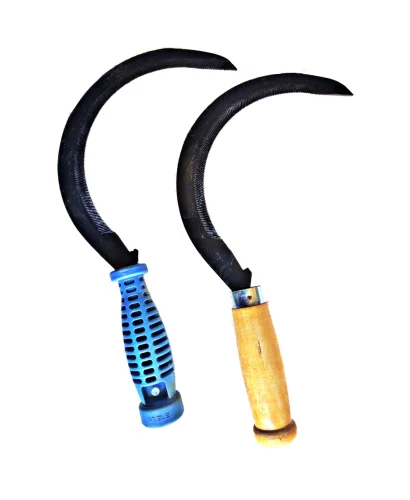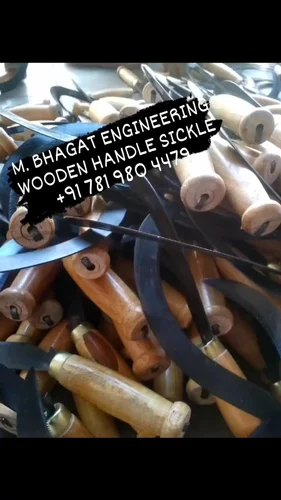No.108 888 Blue 108 PVC Wooden Handle Garden Sickles
₹80.0
| Usage/Application | Agriculture |
| Material | PVC ( Handle) |
| Size | 13 Inch (Length) |
| Model Name/Number | 108 |
| Brand | MBE |
| Blade Thickness | 3 mm |
| Handle Color | Blue |
- Description
- Additional information
- Reviews (0)
- Q & A
- Sustainability Remark
- More Offers
- Store Policies
- Inquiries
| brands | MBE |
|---|
You must be logged in to post a review.
Q & A
Harvest management tools can contribute to sustainability in agriculture by improving efficiency, reducing waste, and promoting sustainable practices. Here are some ways in which harvest management tools support sustainability:
Yield optimization: Harvest management tools provide farmers with real-time data on crop maturity, quality, and yield potential. This information enables farmers to optimize harvesting schedules, ensuring that crops are harvested at the peak of maturity and minimizing post-harvest losses.
Resource efficiency: These tools help farmers allocate resources efficiently during the harvest process. By accurately estimating crop yields and coordinating labor, equipment, and storage capacity, farmers can minimize unnecessary resource use and reduce waste.
Waste reduction: Harvest management tools assist in identifying and addressing areas of waste during harvesting. They enable farmers to monitor and reduce losses due to factors such as improper harvesting techniques, transportation damage, or storage issues. By minimizing waste, farmers can maximize the value and utilization of harvested crops while reducing environmental impacts.
Traceability and quality control: Harvest management tools can provide detailed information about each harvested crop, including its origin, handling, and storage conditions. This traceability supports quality control, ensuring that harvested crops meet specific standards and reducing the risk of contamination or spoilage. It promotes sustainable production by enhancing food safety, reducing the likelihood of product recalls, and improving consumer confidence.
Data-driven decision making: Harvest management tools collect and analyze data throughout the harvest process. This data can be used to identify trends, optimize operations, and make informed decisions. By leveraging data-driven insights, farmers can refine their harvest practices, reduce inefficiencies, and minimize the environmental footprint of their operations.
Integration with other technologies: Harvest management tools can integrate with other agricultural technologies such as precision agriculture systems, robotic harvesting, or smart storage solutions. This integration enables a more holistic approach to sustainable harvest management, combining data from multiple sources to optimize workflows, reduce losses, and improve resource efficiency.
To ensure the sustainability of harvest management tools, it is important to consider factors such as data privacy, interoperability, and accessibility. Additionally, ongoing maintenance, training, and adaptation of these tools to specific farming contexts are crucial to maximize their sustainability benefits.
General Inquiries
There are no inquiries yet.




Reviews
There are no reviews yet.